Earth
Sign up for our newsletter
We summarize the week's scientific breakthroughs every Thursday.
-
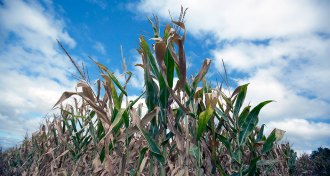 Climate
ClimateCarbon cuts could save U.S. farmers billions of dollars
Reducing carbon emissions could save U.S. agriculture industry billions of dollars annually by curtailing droughts.
-
 Microbes
MicrobesBacteria in flowers may boost honeybees’ healthy gut microbes
Honeybees may deliver doses of probiotics to the hive to help feed baby bees’ microbiome.
By Beth Mole -
 Earth
EarthNepal quake’s biggest shakes relatively spread out
The seismic rumblings of the April 25 Nepal earthquake were mostly in low frequencies that are more likely to collapse large structures, new research suggests.
-
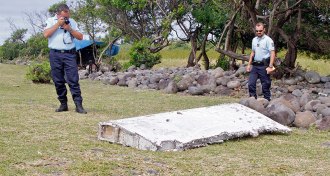 Oceans
OceansOcean current simulations could narrow Flight 370 search
Aircraft debris found on Réunion Island in the western Indian Ocean could originate from the northern half of Malaysia Airlines Flight 370’s search area, ocean simulations show.
-
 Environment
EnvironmentDust components may promote obesity
Fat dust bunnies may contain obesity-boosting chemicals.
By Beth Mole -
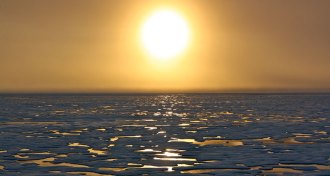 Climate
ClimateIceless Arctic summers now expected by 2050s
The Arctic Ocean will have its first ice-free summer in the 2050s, nine years earlier than previously forecast, according to improved simulations.
-
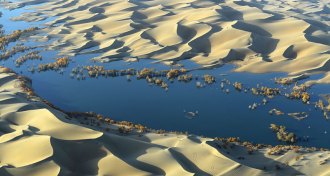 Climate
ClimateDesert dig uncovers caches of missing CO2
Irrigation water may wash significant amounts of carbon into groundwater systems beneath Earth’s deserts, researchers propose.
-
 Neuroscience
NeuroscienceGlobal warming unpaused, how space affects the brain and more reader feedback
A reader shares a story about Stephen Jay Gould, while others discuss how to protect the brain from radiation in space and whether 2014 was the hottest year on record.
-
 Ecosystems
EcosystemsEncased algae create kaleidoscope of color
The skeletons of diatoms, algae that produce oxygen but also form toxic blooms, can create beautiful microscopic designs.
-
 Paleontology
PaleontologySudden heat spikes did in Ice Age’s mammoth mammals
Abrupt warming and excessive hunting by ancient humans were responsible for the disappearance of many large mammals, including woolly mammoths, during Earth’s last glacial period.
-
 Environment
EnvironmentFracking doesn’t always go to great depths
Fracking at shallow depths is unexpectedly common in the United States and raises new concern for drinking water contamination.
By Beth Mole -
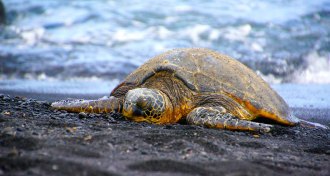 Animals
AnimalsSea level rise threatens sea turtles
Sea level rise is causing coastal areas to be inundated with water. Even short periods of being wet can kill sea turtle eggs, a new study finds.